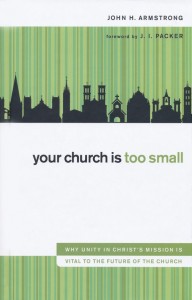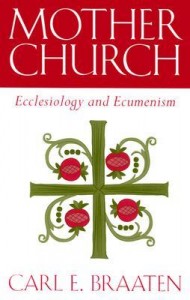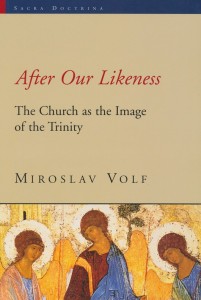“For their sakes I sanctify Myself, that they themselves also may be sanctified in truth. I do not ask on behalf of these alone, but for those also who believe in Me through their word; that they may all be one; even as You, Father, are in Me and I in You, that they also may be in Us, so that the world may believe that You sent Me“ (John 17:19-21).
As a teen attending a Pentecostal church in the 1970s I consistently heard bold pronouncements about the dead Baptists, the apostate Methodists, and above all the “great whore” – the Catholic Church. The concept of ecumenism was most often presented as a diabolical scheme to form a “one-world” church led by the “false prophet” for the purpose of worshiping the notorious antichrist. As a young pastor in the 1980’s I discovered that these sentiments were firmly entrenched traditions in Pentecostal churches.
Pentecostal ecclesiology is most often understood in terms of restorationism, that is, with the death of the last apostle (or with the psuedo-conversion of Constantine), the church entered into a long season of apostasy, with few signs of lasting renewal though the ages. The advent of the 20th century Pentecostal movement signaled a “last days revival” that would bring all true believers into the Pentecostal fold just before the rapture of the church. This belief has had profound effects upon popular Pentecostal self-understanding. First, since the church has been apostate throughout the centuries, there is little reason to study church history. It is not a stretch to suggest that for most Pentecostals church history began in 1906 with the Azusa Street outpouring. This means that many Pentecostals have no roots and without roots they cannot be properly nourished and grow.
The second detrimental effect is that many Pentecostals have developed a docetic ecclesiology (this is common among many Protestants as well). Docetism was an early Gnostic heresy that taught that Jesus Christ was not the incarnate Son of God, but only seemed to have a body of flesh. A docetic ecclesiology suggest that the church is not physical or visible, but only an invisible, spiritual reality. Concerning the Incarnation, the apostle John wrote, “By this you know the Spirit of God: every spirit that confesses that Jesus Christ has come in the flesh is from God; and every spirit that does not confess Jesus is not from God; this is the spirit of the antichrist…” (1 John 4:2-3). Following John’s argument, I suggest that to deny the visible, physical church is likewise heretical.
This leads to a discussion about which Pentecostals are wary – the unity of the Faith. I recognize that some Pentecostal scholars have been involved in the ecumenical movement, but this activity has been viewed with suspicion by the majority. My journey into ecumenism began as a pastor in rural southern Georgia (read the preface of Pentecostal Sacraments). My desire to become more visible and effective as a missionary-pastor required me to enlarge my vision of Christ’s church. This has opened many doors of mission throughout the world. It is the joining of ecumenism and mission that Pentecostals must embrace.
With this in mind I would like to recommend a book – Your Church is Too Small – by John H. Armstrong. The subtitle explains the thesis – “Why Unity in Christ’s Mission is Vital to the Future of the Church.”
 Armstrong presents a compelling case that Protestant sectarianism is biblically uninformed and ultimately detrimental to the mission of Jesus Christ. Most Protestants (and Pentecostals) have a “small” view of the church. The church is local, rather than universal; disjointed rather than unified. Armstrong challenges sectarianism with a call to relational unity and cooperational love for the sake of a missional ecumenism. Armstrong correctly suggests that current ecumenical efforts and dialogues will be fruitless if they are not connected to the mission of Christ. For the purpose of promoting ecumenical mission he discusses many related issues – the marks of the church, the role of Tradition, hermeneutics, etc. He challenges Protestants to acknowledge the church catholic throughout history and presents a vision for the future. He offers wise counsel on how Christians may embrace each other as brothers and sisters in spite of differences in doctrine and practice. This book is written for pastors and church leaders. It is well informed, but it is not an academic tome. In other words, Armstrong presents the issues clearly so that the believers in the pew may grasp and implement the vision. Each chapter ends with discussion questions which make this book ideal for small group study.
Armstrong presents a compelling case that Protestant sectarianism is biblically uninformed and ultimately detrimental to the mission of Jesus Christ. Most Protestants (and Pentecostals) have a “small” view of the church. The church is local, rather than universal; disjointed rather than unified. Armstrong challenges sectarianism with a call to relational unity and cooperational love for the sake of a missional ecumenism. Armstrong correctly suggests that current ecumenical efforts and dialogues will be fruitless if they are not connected to the mission of Christ. For the purpose of promoting ecumenical mission he discusses many related issues – the marks of the church, the role of Tradition, hermeneutics, etc. He challenges Protestants to acknowledge the church catholic throughout history and presents a vision for the future. He offers wise counsel on how Christians may embrace each other as brothers and sisters in spite of differences in doctrine and practice. This book is written for pastors and church leaders. It is well informed, but it is not an academic tome. In other words, Armstrong presents the issues clearly so that the believers in the pew may grasp and implement the vision. Each chapter ends with discussion questions which make this book ideal for small group study.
As a child I often complained about the household chores. My mother would reply, “Big jobs become small when shared by all.” The mission of Christ extends throughout the world and throughout the age. It’s overwhelming at times. Regardless of our mission field – rural or urban, throughout the world – we cannot fulfill the Great Commission alone.
Want to read more on the subject? I also recommend:


